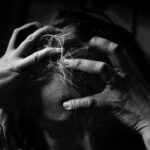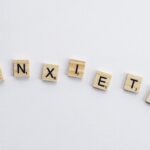Millions of people all over the world suffer from depression, which is a common mental health disorder. It is characterized by feelings of sadness, hopelessness, and loss of interest in activities that a person once enjoyed. Anyone can experience depression, regardless of their age, gender, or social standing. In this article, we will discuss what depression is, its symptoms, and the most effective ways to manage and treat depression.
What is Depression?
A mood disorder called depression affects a person’s thoughts, feelings, and behaviors. It is a complex disorder that involves various factors, including biological, genetic, environmental, and psychological factors. Depression can be caused by a combination of these factors or may be triggered by a stressful event, such as the loss of a loved one, a relationship breakup, or a significant life change.
The severity of depression can range from mild to severe. It can also be chronic, meaning that the symptoms persist for an extended period, or it can be episodic, meaning that the symptoms come and go over time. Depression can also co-occur with other mental health disorders, such as anxiety or substance abuse.
Symptoms of Depression
The symptoms of depression can vary from person to person, but some common symptoms include:
- Persistent feelings of sadness, hopelessness, or emptiness
- loss of interest in once-enjoyable activities or enjoyment of them
- Changes in appetite or weight
- Sleep disturbances, such as insomnia or excessive sleeping
- Fatigue or loss of energy
- Feelings of worthlessness or guilt
- Difficulty concentrating or making decisions
- Suicidal thoughts or behaviors
These symptoms can interfere with a person’s daily activities, including work, school, and relationshipsIf you or someone you know is experiencing signs of depression, it is imperative that you get professional assistance.
Effective Ways to Manage and Treat Depression
There are various ways to manage and treat depression, including:
- Therapy
Therapy is a common treatment for depression, and it can be effective for mild to moderate depression. Cognitive-behavioral therapy (CBT) and interpersonal therapy (IPT) are two types of therapy that are commonly used to treat depression. CBT focuses on changing negative thought patterns and behaviors, while IPT focuses on improving communication and interpersonal relationships.
- Medication
Antidepressant medication can be effective in treating depression, particularly for moderate to severe depression. Antidepressants work by increasing the levels of certain chemicals in the brain, such as serotonin and norepinephrine, which can improve mood and reduce symptoms of depression. However, antidepressants can have side effects, and it is essential to discuss the risks and benefits of medication with a healthcare provider.
- Exercise
Exercise is a natural way to boost mood and reduce symptoms of depression. Endorphins, feel-good brain chemicals that can elevate mood and lessen stress, are released during exercise. Exercise can also improve sleep, increase energy levels, and boost self-esteem.
- Self-Care
Self-care is an essential part of managing depression. It involves taking care of your physical and emotional well-being, such as eating a healthy diet, getting enough sleep, engaging in activities that you enjoy, and practicing relaxation techniques, such as meditation or yoga.
- Social Support
Social support can be an essential part of managing depression. Talking to friends or family members about your feelings can help you feel supported and understood. Joining a support group or participating in group therapy can also provide social support and help you connect with others who are experiencing similar challenges.
- Mindfulness-Based Practices
Mindfulness-based practices, such as mindfulness-based stress reduction (MBSR) or mindfulness-based cognitive therapy (MBCT), can be effective in reducing symptoms of depression. These practices involve focusing on the present moment and cultivating a non-judgmental awareness of thoughts and emotions.
- Light Therapy
Light therapy involves exposure to bright light, typically for 30 minutes to an hour a day, to help regulate the body’s circadian rhythms. Light therapy can be effective in treating seasonal affective disorder (SAD), a type of depression that occurs during the winter months.
- Alternative Therapies
Some alternative therapies, such as acupuncture, massage therapy, or herbal remedies, may be helpful in managing symptoms of depression. However, it is important to discuss these treatments with a healthcare provider before trying them.
- Supportive Relationships
Having supportive relationships with friends, family, or a significant other can help manage depression. It is essential to communicate with loved ones about how you are feeling and ask for support when needed.
- Professional Support
In some cases, depression may require more intensive treatment or hospitalization. It is important to seek professional support if you are experiencing severe symptoms of depression, such as suicidal thoughts or behaviors.







